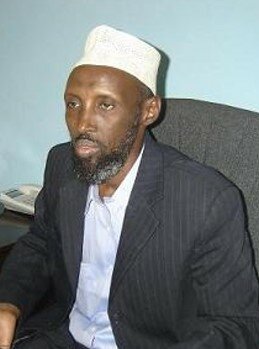 NAIROBI, Oct 4 (Reuters) – Somalia’s government will not be able to defeat al Qaeda-linked militants jeopardising peace because the Horn of Africa nation’s forces are too weak and African peacekeepers have a defensive mandate, a minister said.
NAIROBI, Oct 4 (Reuters) – Somalia’s government will not be able to defeat al Qaeda-linked militants jeopardising peace because the Horn of Africa nation’s forces are too weak and African peacekeepers have a defensive mandate, a minister said.
Al Shabaab rebels, who Washington say are al Qaeda’s proxy in Somalia, have waged a two-and-a-half year insurgency against the fragile government in a quest to impose their own harsh version of sharia law throughout the anarchic country.
“Somalis alone are not capable of confronting these groups. We need international assistance to strengthen our security forces to prepare them to do most of the job,” Interior Minister Abdulkadir Ali Omar told Reuters in an interview.
Omar was deputy chairman of the Islamic Courts Union that briefly ran Mogadishu in 2006. His moderate Islamist militia has now been integrated with government security forces.
Fighting since the start of 2007 has killed some 19,000 civilians, uprooted 1.5 million from their homes and confined the government to a few blocks of the capital, with an African Union force (AMISOM) protecting key sites.
AMISOM has been targeted by insurgents with suicide attacks, but quibbles over its mandate have prevented the 5,000 troops from Uganda and Burundi going on any major offensive.
“Amendments of AMISOM rules of engagement are important, so that they can play more active role in the country,” said Omar.
He appealed to international donors to fulfil commitments of financial support so the government could defeat the rebels and tackle the humanitarian disaster in the country.
“We would like to see more practical support from the international community and that aid has to be more than words.”
COMMITTED TO GOVERNMENT
Some international donors have proved reticent about handing over pledges to the government on the grounds that corrupt officials could divert money meant for the security forces.
Somalia has had no strong central government since 1991 and the administration’s main sources of revenue are Mogadishu’s air and sea ports.
“We are really working on how best we can utilise the local revenue and find a solution for corruption in both central and local institutions,” Omar said.
“We have established a committee playing the role of an anti-corruption body that can question anyone misusing state funds,” said the minister, during his first trip to neighbouring countries since he was appointed in February.
The United States has also sent weapons to the government, but there are reports some of the munitions are on sale in Mogadishu’s arms market, and end up with insurgents.
Omar and his forces have also been accused of passing information and weapons to the rebels — and were blamed for the kidnapping of two French security agents this year.
“I have been working on peace in Somalia for the last 10 years. That was a personal initiative to save my own people from brutal gangs that used to kidnap and rob properties,” he said.
“I volunteered my time, put all my efforts into a peaceful Somalia. So how I can be a security danger to my own country?”
But Omar said he was not surprised by the allegations, saying they were lies fabricated by rivals who were convinced leaders in Somalia could not play two roles at one time.
“There is a clear choice there … you are either a government member, or an insurgent,” he said. “Offering information to insurgents to target us is committing suicide.”
_____
Source: Reuters (Editing by David Clarke)






